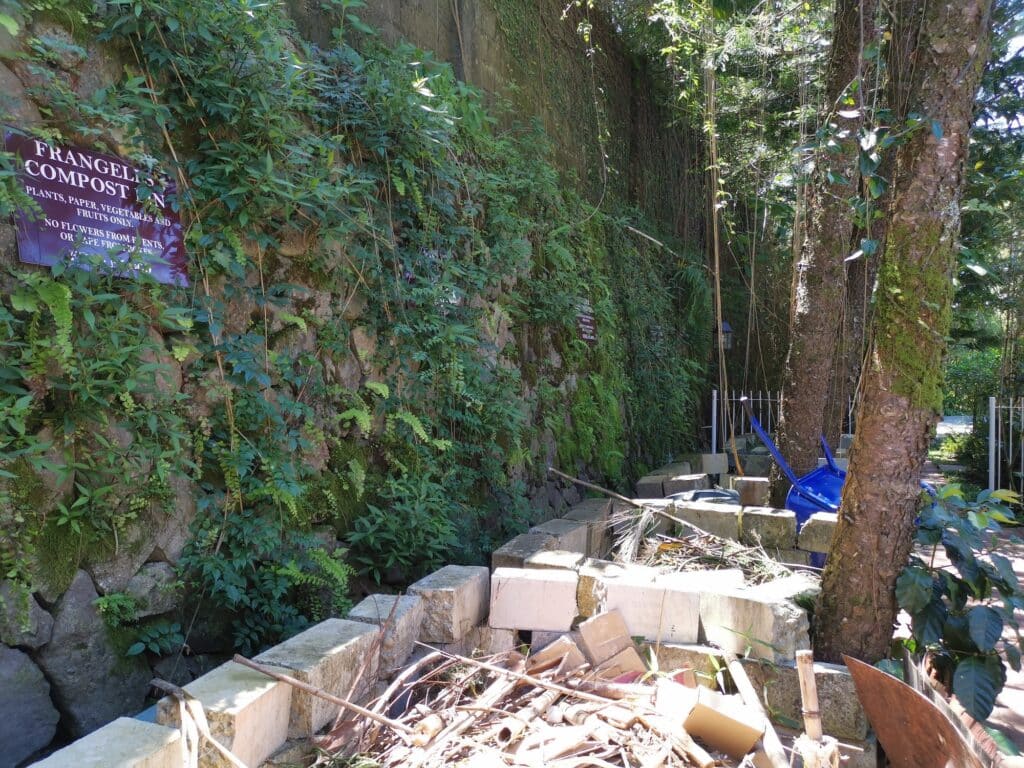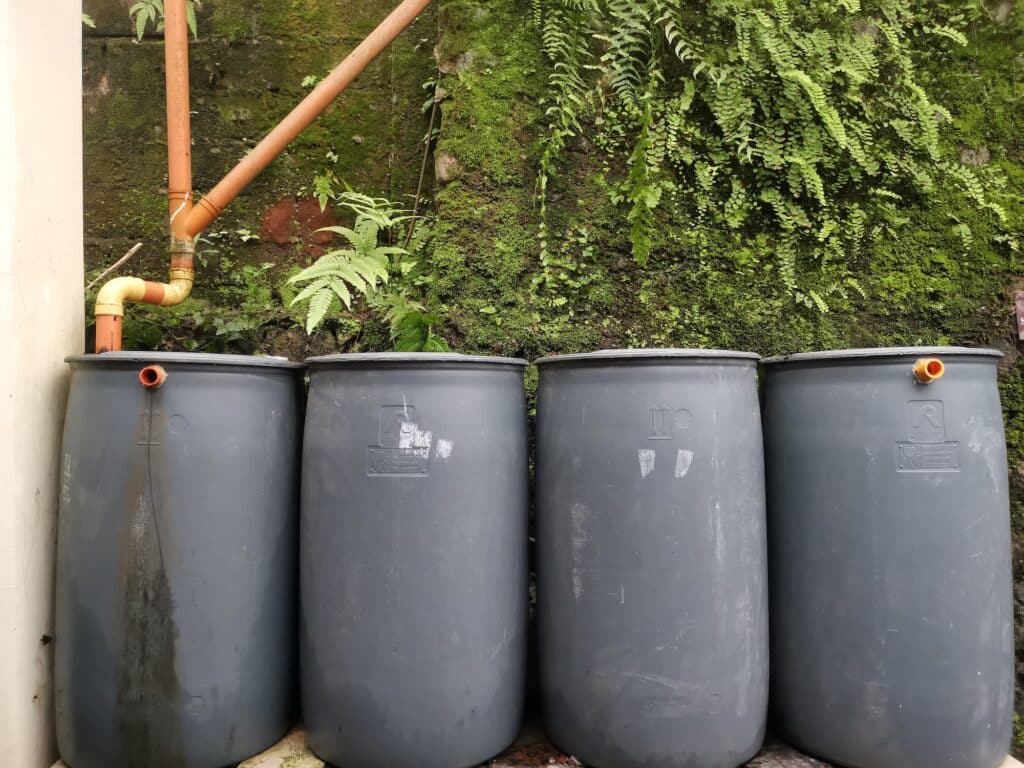For Frangeli House, a wedding venue in the city of Baguio, these are interesting times to be in the hospitality and events industry. After almost three years of being in the doldrums due to the Covid -19 pandemic, the venue has once again opened its treed gardens and light, airy rooms to wedding couples and guests. Covid cases are down, social distancing seems like a distant past, and the venue’s calendar is being briskly filled up with weddings, debuts, birthdays and reunions. But while the return to normalcy is a most welcome development, the upswing in the number of festive milestone celebrations has brought with it, a corollary spike in the volume of trash and discards that have to be managed. A busy venue also means more consumption of precious resources such as water.
Reducing Waste
Striving to incorporate ecologically sound practices in its daily operations since it welcomed guests in 2013, Frangeli House has stepped up its efforts to reduce generated waste, especially so because it operates in a city that is burdened by an ever-present garbage crisis. To do this, it encourages events suppliers to resort to using environmentally safe materials, shun single-use plastics, and practice segregation at source like it does, in order to make waste reduction, collection, and recycling easier for the city’s garbage handlers. To further reduce the garbage that it puts out for collection, trimmings from the garden, biodegradable props and styling materials from events are composted in a dedicated area in the garden grounds. Several bins serve as receptacles for kitchen food scraps that are turned to rich natural fertilizers by African night crawler worms. The compost is used to enrich the soil of Frangeli House’s vegetable patches and gardens that provide that woodland feel to a couple’s dream wedding.

In its ensuite bathrooms, the ubiquitous, hard-to recycle sachets are nowhere to be found. Instead, bath supplies in reusable bottles are provided for houseguests. And because plastic water bottles are a scourge to marine life and pollute the oceans, Frangeli House provides water dispensers for people to fill their reusable containers.
Reusing & Recycling Precious Resources
The influx of guests has also meant an increase in the use of clean water. Although it has yet to install a water recycling system, Frangeli House has operationalized an underground cistern and recycled plastic drums as rain harvesters. Water collected here is used for watering the gardens and cleaning the exteriors of the venue. Operating the events venue also means being cognizant of other environmental realities and creatively finding ways to reduce the impact of such an enterprise on our fragile ecosystem.

To take advantage of the city’s generous rainfall and keep the venue’s cool temperature especially in this time of warming climates, the busy garden areas for reception were covered with geotextiles and pavers and not cemented. This is to keep the open spaces as aquifers for ground water, while keeping their multifunction use. Over the years, Frangeli House has also tended to its gardens, increased the number of trees— evergreens and fruit-bearing–and added a variety of plants that play host to a number of wildlife. At different times of the year, one could spot butterflies, about forty kinds of them, a variety of insects, birds and bats that visit Frangeli House’s gardens. Philippine pygmy woodpeckers, sulphur billed nuthatches, Philippine scops owl, besra hawk, flowerpeckers and about thirteen more identified birds frequent the venue’s gardens. Frogs and toads are residents. In the month of October, the Norfolk pine trees are alit like Christmas trees by the twinkling glow of fireflies.
By aiming to be a green gathering space, Frangeli House wants people to experience the joy of calm and repose in an urban setting. For Frangeli House, to be a gracious host to a multiple species of satisfied guests is truly a pleasure.

- This article was featured at North Star Magazine’s first issue, 2023.
Ling
Volunteers with Zero Waste Baguio.
Environmentalist and resident gardener.